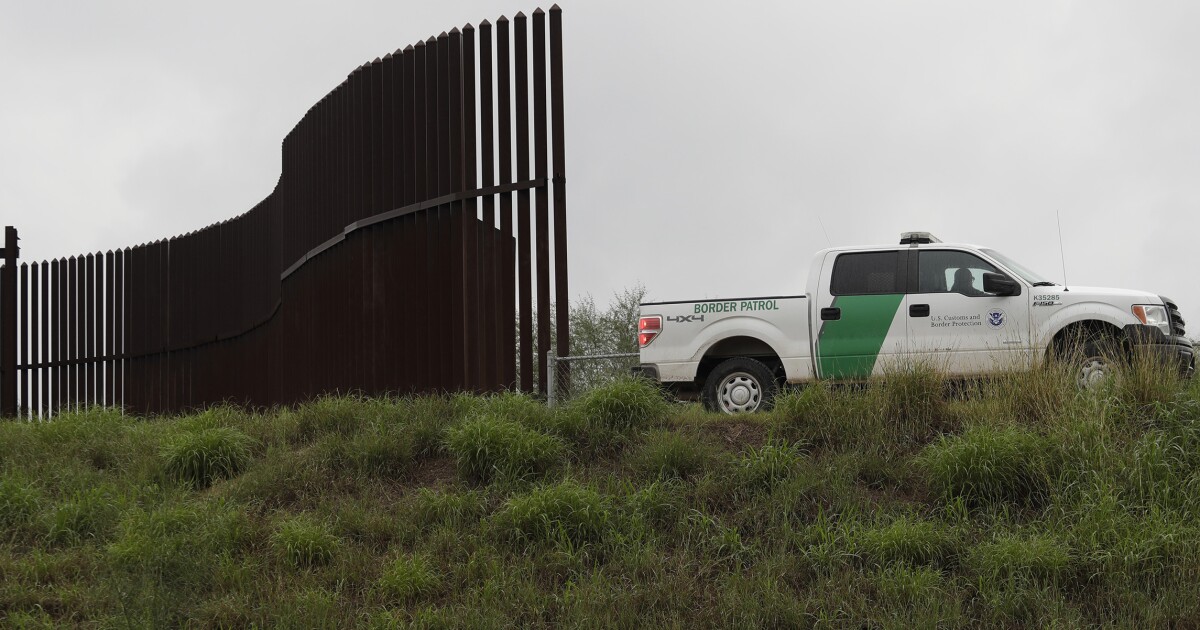

Republicans on Monday will debut comprehensive border security legislation in the House that has been years in making, the Washington Examiner has learned.
On Monday, the House Homeland Security Committee will debut key legislation that Republicans have spent two years working on, most notably over the past three months through meetings with federal law enforcement and nongovernmental organizations during trips to the U.S.-Mexico border and hearings in Washington.
BEHIND THE SCENES OF AMERICA’S FENTANYL SEIZURE EPICENTER
Three committee aides with firsthand knowledge of the bill shared that the Border Reinforcement Act of 2023 is meant to complement the House Judiciary Committee’s recently passed Border Security and Enforcement Act, not to compete with it.
Each bill had to go through separate committees, according to a committee aide, because judiciary has jurisdiction over immigration laws and homeland security handles border security matters.
However, the two bills will be combined into one package once the border security legislation is marked up and passed by the homeland security panel.
Republicans are looking to move at an expeditious pace. Homeland security will mark up the bill Wednesday, which could go late into the night if Democrats on the committee put forward as many amendments as they did during last week’s judiciary markup.
The homeland security proposal was borne out of the American Security Task Force’s work. Former New York GOP Rep. John Katko, ranking member of homeland security, convened the task force in 2021 to begin working on border policy reforms that the House GOP could agree on and therefore be ready to move on if the party won back the majority in November 2022.
Last July, the task force, comprised primarily of border lawmakers, announced a framework for a bill they believed could win full party support.
“We’re going to be very aggressive, and I think the administration will have some choices to make,” Katko said at the time.
The homeland security bill largely follows that proposal and would reinstate mandates for physical barriers, infrastructure, and technology on the 2,000-mile southern border. Although the Trump administration funded 800 miles of border wall projects, it completed just over 450 miles.
Additionally, the bill seeks to rein in the Biden administration’s use of a process known as humanitarian parole. It would bar the Department of Homeland Security from using U.S. Customs and Border Protection’s CBP One phone app for any purpose other than commercial travel, rescinding how the agency expanded its use for immigrants to seek admission to the United States by requesting interviews at ports of entry.
The Biden administration has previously defended the use of the app as being for immigration purposes and, in fact, the reason that illegal crossings on the southern border declined in January and February — because some immigrants chose to go to a port of entry rather than cross illegally by walking around it.
But Republicans have argued the White House is abusing the parole process by allowing up to 120,000 people per month to be waved into the U.S. without even making an asylum request.
The Biden administration would also be required to reinstate more than 300 miles of additional wall that had been funded by Congress, as well as through a national emergency declaration that former President Donald Trump had invoked to redirect Defense Department money to DHS to build more wall.
The homeland security bill would require previously funded wall projects to be completed.
The number of Border Patrol agents on payroll would also see a boost. CBP’s acting commissioner, Troy Miller, testified in a House hearing last week that the Border Patrol had 19,000 agents at the moment and was authorized by Congress to have as many as 19,855 agents this year.
Republicans would fund the agency with up to 22,000 agents and require that level be hit by the end of September 2024.
The White House budget for next year would allow an additional 350 agents to be hired in addition to the 19,000 agents on staff. Miller voiced in the hearing last week that they are bracing for the loss of 3,700 agents due to retirements in 2025 and 2026, which would be positions for hire in addition to the 3,000 additional hires.
In an effort to retain employees, agents would receive a financial bonus after an unspecified number of years on staff.
CBP would have to disclose monthly data about the number of noncitizens who attempted to enter the U.S. illegally by the seventh day of the following month. At present, data are released two weeks to one month after the month’s end.
CBP would have to develop a plan for how best to add more technology into its day-to-day operations. Congress would then fund those projects.
Republicans are also looking at funding for nonprofit groups and religious organizations that work with immigrants who illegally crossed the border and were then released into the U.S. and initially helped by these groups.
A recent DHS Inspector General report concluded that outside groups that received this money spent large portions on illegal immigrants who evaded federal agents and sought help despite sneaking into the country rather than being released with a court date.
CLICK HERE TO READ MORE FROM THE WASHINGTON EXAMINER
The task force had also called for the enhanced use of Trump-era initiatives, including returning asylum-seekers to Mexico for the duration of their court proceedings. Families who crossed the border illegally would not be released into the U.S. after being apprehended but detained together. Unaccompanied migrant children from countries other than Mexico and Canada would no longer be admitted into the country as suspected victims of human trafficking.
Homeland security aides said immigration-related laws were in the judiciary bill.





